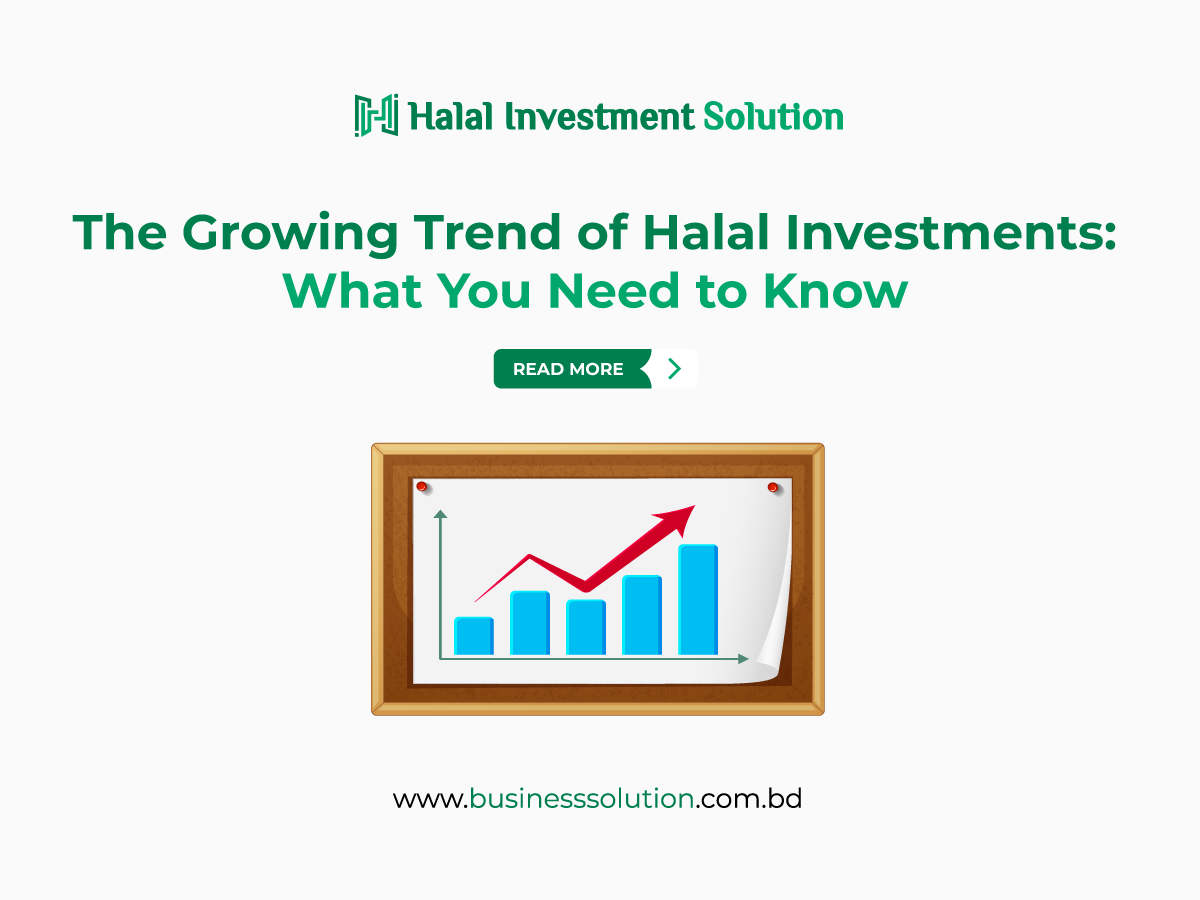Blog > Informative
 View: 341
View: 341
The Growing Trend of Halal Investments: What You Need to Know
By Halal Investment Editor
Aug 20, 2024
Halal investments are increasingly becoming a prominent choice for investors seeking ethical and Shariah-compliant opportunities. As more people turn to halal investment options, understanding this growing trend and its implications is essential. Here’s a detailed look at what’s driving the rise in halal investments and what it means for you.
What Are Halal Investments?
Halal investments adhere to Shariah law, which governs various aspects of financial transactions in Islam. These investments avoid prohibited activities such as:
- Interest (Riba): Earning or paying interest is forbidden in halal investing.
- Unethical Businesses: Investments in industries like alcohol, gambling, or pork are avoided.
- Speculation (Gharar): Investments must be free from excessive uncertainty and speculation.
Why the Rise in Popularity?
Several factors contribute to the growing trend of halal investments:
- Increasing Awareness: As awareness about ethical investing grows, more individuals seek investments that align with their values.
- Global Muslim Population Growth: The expanding Muslim population worldwide increases demand for Shariah-compliant financial products.
- Ethical and Sustainable Investing: Halal investments often align with broader ethical and sustainable investing principles, appealing to a wider audience beyond just Muslims.
Benefits of Halal Investments
Halal investments offer several advantages:
- Ethical Considerations: Investments are made in businesses that adhere to ethical practices and contribute positively to society.
- Risk Management: Shariah-compliant investments typically involve shared risk and profit, which can lead to more balanced financial outcomes.
- Diversification: A variety of halal investment options, such as stocks, real estate, and bonds, allow for diversified portfolios.
Popular Halal Investment Options
Here are some popular halal investment opportunities to consider:
- Islamic Bonds (Sukuk): Fixed-income securities that comply with Shariah principles.
- Shariah-Compliant Stocks: Shares in companies that meet ethical and legal guidelines.
- Real Estate: Investments in property that meet Shariah criteria.
- Halal Mutual Funds: Funds that pool money to invest in Shariah-compliant assets.
How to Get Started with Halal Investing
If you’re interested in exploring halal investments, follow these steps:
- Educate Yourself: Understand the principles of Shariah-compliant investing and available options.
- Consult Experts: Seek advice from financial advisors who specialize in halal investments.
- Research Investment Products: Look for reputable products and companies that offer Shariah-compliant options.
- Diversify Your Portfolio: Spread your investments across different asset classes to manage risk effectively.
Conclusion
The growing trend of halal investments reflects a broader shift towards ethical and sustainable financial practices. By aligning your investments with Shariah principles, you not only adhere to your values but also potentially benefit from a balanced and diverse portfolio. As the demand for halal investments continues to rise, staying informed and making educated choices will help you navigate this evolving landscape.


